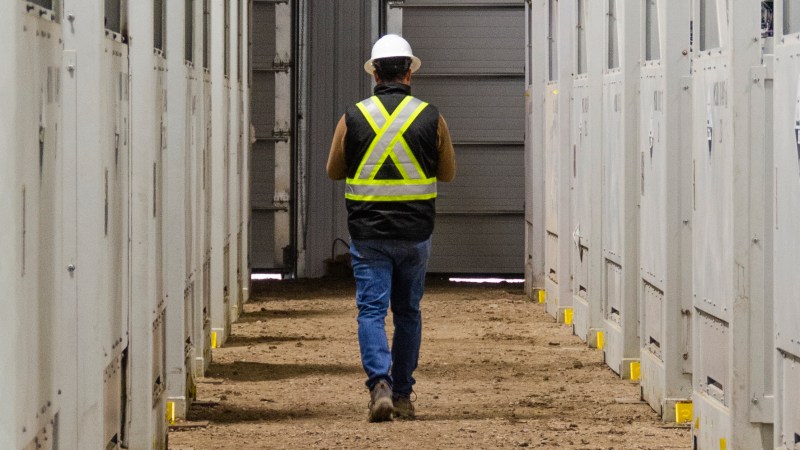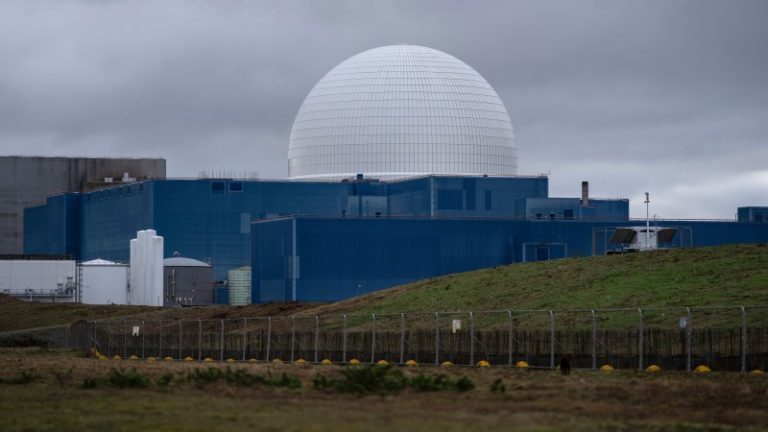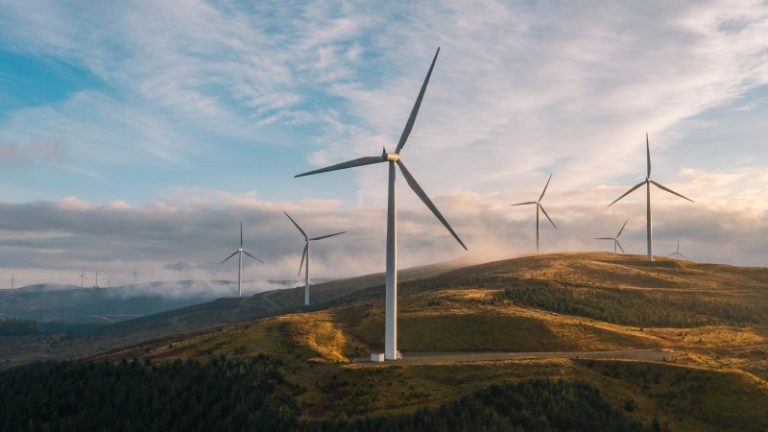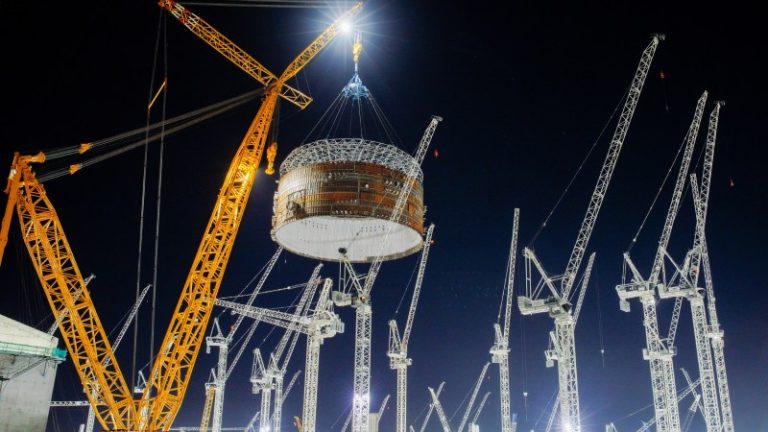The water-based battery that could solve our energy needs
The UK has a wind problem. At times, we have too much of it, and our wind turbines spin uselessly with their energy having nowhere to go.
One solution is to capture that energy in batteries and release it when it is needed. So far the lithium battery tech used in electric cars has not shown itself to be particularly long lasting or easy to scale up. Invinity, a company listed on the London Stock Exchange’s Aim market, thinks it has the answer.
Invinity manufactures batteries using a technology called vanadium flow. Instead of using lithium, the company uses another mineral, vanadium, and can serve power back to the grid for up to 12 hours compared with about four hours when using lithium batteries.
• Europe’s oil companies warned New York switch may not be answer
Its model is attracting interest. Last week Invinity pulled off a £56 million capital raise arranged by the investment broker VSA, which included £25 million of taxpayers’ money via the UK Infrastructure Bank — no mean feat given the current lack of appetite for smaller company fundraisers. The funds will help the company scale up until it is generating cash from its own products, some time in 2025.
“The Infrastructure Bank has done six months of due diligence on us. That has been significant in getting other people comfortable that now is the time to back us,” said Jonathan Marren, the chief financial officer of Invinity Energy Systems.

• Supply gap for copper ‘could grow to a third’, trader predicts
Invinity’s capital raise is thought to be one of the largest in London this year and was oversubscribed. “We’ve had some big institutions backing us for the first time,” said Marren. “That shows to me there is capital available. But I think you’ve got to have the story right. The hope is that we’ll get the market going again.”
Invinity’s timing looks good. Last week the G7 set a goal of increasing battery storage on grids sixfold by 2030. The move comes as governments look to wean themselves off minerals supplied by China, including lithium.
The company’s vanadium flow battery can emit 220Kwh, enough to power 30 homes for a day. Invinity claims that the 25-year lifespan of its product easily outweighs that of lithium batteries. Flow batteries come in units the size of shipping containers and can be stacked closely together to generate more power. Because they are water-based, there is no risk of fire.
“Lithium batteries, while they have their uses, won’t meet all the requirements for energy storage, especially as the market demands longer duration to bridge the gaps in renewables,” said Larry Zulch, the chief executive of Invinity.

Vanadium is mined in Brazil, China, Russia and South Africa but can also be recycled from iron ore slag. The FTSE 100 giant Glencore mines it in South Africa. Typically used to reinforce steel, it can also be used to store electricity. Vanadium salts are dissolved into a water-based electrolyte solution that “flows” (hence the name “flow battery”) through a “cell stack” comprised of plastic frames and electrodes stacked together. This enables electrons to pass back and forth between the vanadium atoms, allowing electricity to be stored or released.
Vanadium flow batteries are a relatively well-understood concept, Zulch said, but they have taken time to gain traction as research has focused on lithium batteries. Invinity’s customers already include Scottish Water and EDF. Three years ago it signed up the wind farm giant Siemens Gamesa as a partner to work on the next generation of its batteries. Schroders is its biggest investor.
In the medium term, Invinity plans to manufacture batteries in Bathgate in Scotland and Vancouver, Canada. It then hopes to license its tech in other markets, where batteries would be built by third-party manufacturers.






